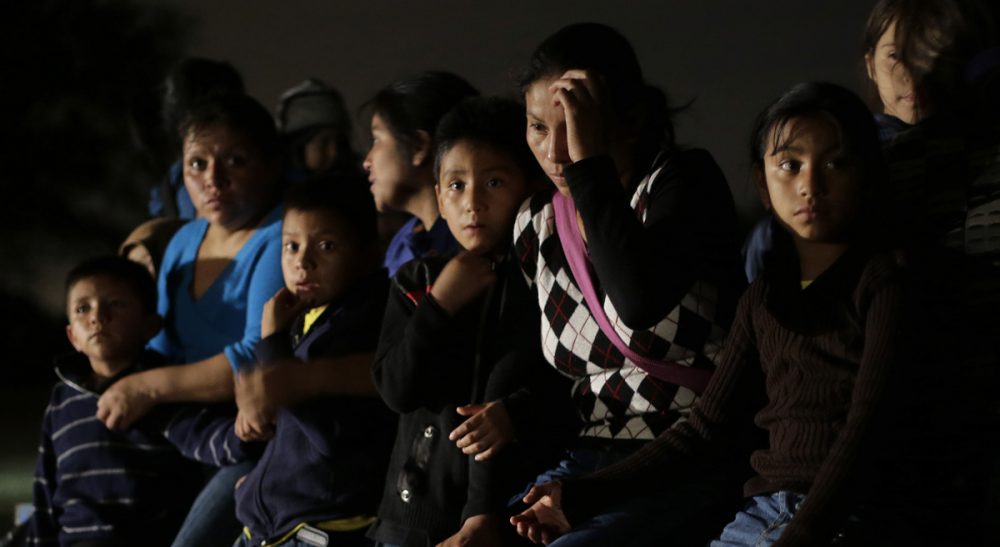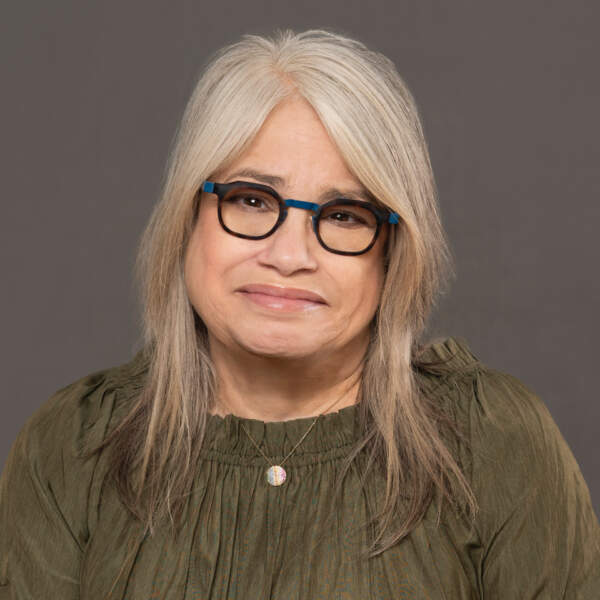Advertisement
Then And Now: Two Eras, Two Responses To The Plights Of Migrant Children

The children have traveled from places like Honduras, El Salvador and Guatemala. Fifty-two-thousand of them have streamed across our southwestern border, most of them crossing the entire length of Mexico alone. According to Customs and Border Protection, the number of “unaccompanied alien children” apprehended at the border between October 1, 2013 and June 15, 2014 has nearly doubled. On Monday, the first wave of deportations began. Twenty-one children, aged 18-months to 15-years-old, and 17 women, all detained at the U. S. border with Mexico, were flown back to Honduras, which the United Nations designated as having the highest murder rate in the world.
The press has called them “unaccompanied minors,” as if they are flying by themselves for the first time to visit a grandparent. The stark truth is that their desperate parents have heard rumors stoked by coyotes and traffickers in their home countries that there is amnesty and a better future in the United States for their children. Now, they believe, is the time to take the calculated risk of sending them across the border.
The president calls their plight “an urgent humanitarian crisis.” Now, these children who survived a treacherous journey await deportation.
Twenty-one children, aged 18-months to 15-years-old, and 17 women, all detained at the U. S. border with Mexico, were flown back to Honduras, which the United Nations designated as having the highest murder rate in the world.
It doesn’t matter that many of them have a legitimate claim to asylum in the United States. President Obama's decision to begin sending these children back to horrific situations as quickly as possible effectively undoes a 2008 law that President Bush signed protecting the rights and welfare of trafficked children. What is happening at the border reflects a hopelessly broken immigration system.
This is not the first time “unaccompanied minors” have come here. Just over 50 years ago, another group of children fled a different Latin American country. In contrast, the children from Cuba had visa waivers and were welcomed in the United States through a CIA rescue operation called Pedro Pan. Between 1960 and 1962, Cuban parents feared that their children would be forced to cut sugar cane in the eastern part of the country or, worse, be placed in Soviet labor camps. In response, they sent them, alone, to the United States. Fourteen-thousand Pedro Pan kids landed in Miami over that two-year period. Some of them went to live with relatives; others were placed in foster care across 30 states.
On the first of January 1961, diplomatic relations between Washington and Havana were severed. Two days later, I was born in Hartford, Conn. My abuela — my maternal grandmother — traveled from Cuba to meet me, her first grandchild. She stayed until March, when she insisted on returning to Havana (via one of the last direct flights from the U. S.) to attend to the rest of her family. She had been particularly worried about her son, Isaac, my 18-year old uncle. She knew he was a prime candidate for Castro’s revolutionary army. Stout and determined, my abuela boarded her flight with a secret in tow, a promise from my father that the young brother-in-law he had never met would be in the States by summer.
For several years, I have been working on a memoir about my father. During the course of my research, I discovered that he had ties to the CIA in the 1950s. His beat was Central America. One of his former associates suggested to me that my father was peripherally involved in training Brigade 2506, the group of Cuban exiles that carried out the botched Bay of Pigs invasion in April, 1961. If so, dad took that secret to his grave, but the one he shared with my grandmother about my uncle Isaac, he saw through.
The stark truth is that their desperate parents have heard rumors stoked by coyotes and traffickers in their home countries that there is amnesty and a better future in the United States for their children.
In June of 1961, two months after the Bay of Pigs fiasco, Isaac, along with dozens of other Pedro Pan kids, boarded a Pan American flight at Jose Martí Airport, destination: Miami.
The Cuban authorities tried to ground the plane as it prepared for take off, but the pilot refused their entry, proclaiming the aircraft sovereign American territory. Forty-five minutes later, my uncle, with his thick Buddy Holly glasses, oiled pompadour and prominent Adam’s apple, was waiting for a connecting flight to Hartford. All around him were the sounds of a language that reminded him, he would later say, of the squawking of farm animals. He must have been thinking, so this America. The disorientation of not being able to read signs or understand what was being said to and around him must have compounded his nervousness about living in a new country under the roof of a brother-in-law he had never met.
I know what my father would have made of today’s Latino children desperate to come to the United States, hoping for a reception similar to their Pedro Pan counterparts — but making their grueling journeys overland, not in under an hour in an air-conditioned jumbo jet. My father’s heart would have broken for these children. He would see them as entitled not only to asylum, a kind reception and a reassuring welcome; he would see them as future citizens of the country he loved. Much like the proud American that my uncle Isaac, now a grandfather of five and the owner of a chain of furniture stores in Florida, became.
Related:
